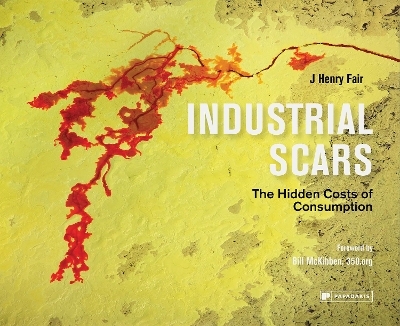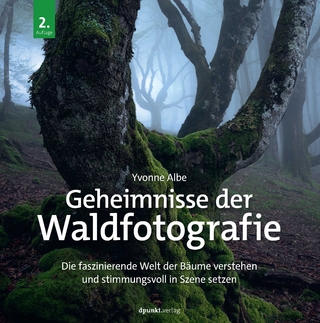
Industrial Scars
Papadakis (Verlag)
978-1-906506-70-4 (ISBN)
Our ever-increasing demand for energy, rapidly changing eating habits and rampant consumerism are rapidly leading to the degradation of our planet. Industrial Scars reveals unseen views of the effects of such production on our environment, exposing the secrets from oil drilling, hydro-fracking and coal-ash waste, to large scale agricultural production and abandoned mining operations. Each of Fair’s striking images, presented here in exquisite detail, are accompanied by detailed explanations. Award-winning science writer Lewis Smith writes about each of the processes in captivating detail, describing the development of each industry through time and across the world. The foreword is written by a leading environmentalist Bill McKibben of 350.org. The overall message is clear – Fair is committed to reveal the evidence of the devastating costs of our choices on our planet. It is up to us to accept a consumer responsibility and environmental awareness, and to change our habits if we want to ensure a better world for future generations to enjoy.
J Henry Fair is an American photographer and environmental activist, based in New York. With his images, Fair has called attention to environmental and political problems in different regions of the world. He is best known for his Industrial Scars series, abstract-expressionist photographs of detritus and externalities, which has been been exhibited around the world at major museums, galleries, and educational institutions. His work has been featured on The TODAY Show, CNN, NPR’s Marketplace, and WDR German TV, as well as in most major publications, including The New York Times, National Geographic, Vanity Fair, Rolling Stone, New York Magazine, Die Zeit, Le Figaro, Harper’s, Smithsonian, and Scientific American. Bill McKibben is an American environmentalist, author, and journalist. He is the Schumann Distinguished Scholar at Middlebury College and the founder and leader of the anti-carbon campaign group 350.org, an international environmental organization with the goal of building a global grassroots movement to raise awareness about human-driven climate change, to confront climate change denial, and to cut emissions of carbon dioxide in order to slow the rate of global warming. He has authored a dozen books about the environment. He was awarded the Gandhi Peace Award in 2013. In 2009, Foreign Policy magazine named him as one of the 100 most important global thinkers, and MSN named him one of the dozen most influential men of the year. He has been called “probably the nation’s leading environmentalist” by the Boston Globe and Time magazine book reviewer Bryan Walsh described him as “the world’s best green journalist”. Lewis Smith is a journalist specialising in science and the environment. After graduating from the University of Leicester he worked on various local newspapers and as a freelancer for several national newspapers, including The Times from 1998 until 2009. His main areas of interest are climate change and animal conservation and behaviour. His first book Why the Lion Grew Its Mane (Papadakis) was longlisted for the Royal Society Prize for Science Books in 2007. He published Why the Cheetah Cheats in 2009.
Foreword - Bill McKibben, 350.org
Industrial Scars - J Henry Fair
ENERGY
Coal
Fracking
Oil
RAW MATERIALS
Aluminium
Copper
Steel
FARMING
Food
BEHIND THE SCENES
The Pilots
About the Contributors
About the Author
Acknowledgements
| Erscheinungsdatum | 25.09.2019 |
|---|---|
| Vorwort | Lewis Smith |
| Zusatzinfo | 4 Illustrations, black and white; 181 Illustrations, color |
| Verlagsort | Newbury |
| Sprache | englisch |
| Maße | 189 x 234 mm |
| Gewicht | 984 g |
| Themenwelt | Kunst / Musik / Theater ► Fotokunst |
| Sachbuch/Ratgeber ► Freizeit / Hobby ► Fotografieren / Filmen | |
| Naturwissenschaften ► Biologie ► Ökologie / Naturschutz | |
| ISBN-10 | 1-906506-70-1 / 1906506701 |
| ISBN-13 | 978-1-906506-70-4 / 9781906506704 |
| Zustand | Neuware |
| Haben Sie eine Frage zum Produkt? |
aus dem Bereich


